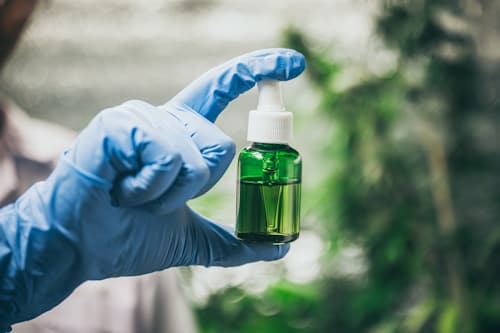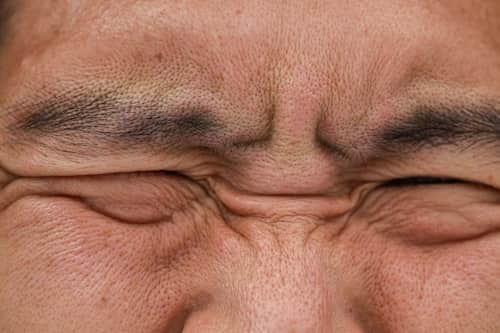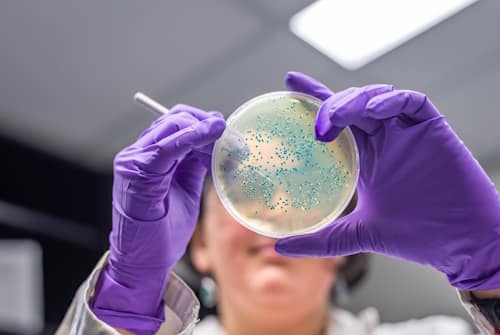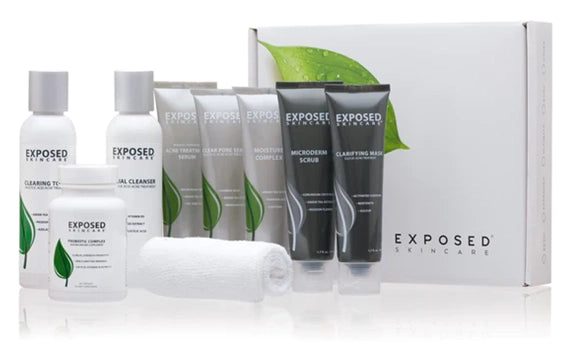Peppermint oil offers a soothing aroma and a cooling sensation, making it one of the most popular essential oils on the market. Known for its diverse applications, from aromatherapy to alleviating headaches, this essential oil has also made a name for itself in skin care.
However, the story isn't so straightforward when it comes to treating acne. Although it has many benefits, here are four compelling reasons to reconsider using peppermint oil for acne.
Also read: How to choose the best acne treatment
Biggest Take-Aways:
- Peppermint oil has some antibacterial and anti-inflammatory properties but is not an ideal treatment for acne due to potential skin irritation and imbalance.
- The need to dilute peppermint oil with a carrier oil like jojoba makes it a less convenient option for acne treatment.
- Peppermint oil should not replace other scientifically backed treatments for effective and comprehensive acne management.
- Exposed Skin Care offers a range of products specifically designed to treat various aspects of acne without the risks associated with highly concentrated essential oils.

The Sensitivity Quotient: Irritation Over Relief
Understanding that not all skin types react similarly to essential oils is crucial. While peppermint oil has several appealing features, the high menthol content in peppermint oil can be a double-edged sword, especially when applied topically to sensitive skin.
Intolerant Skin Types
Peppermint essential oil is highly concentrated, and its potent nature can easily irritate sensitive skin types. Symptoms can range from redness and itchiness to more severe forms of irritation. The cooling menthol might feel refreshing initially, but it can quickly turn into an uncomfortable burning sensation.
The Need for a Carrier Oil
You might think diluting peppermint oil with a carrier oil like jojoba oil would solve the problem. However, even when diluted, peppermint essential oil may still irritate. Diluting the oil doesn't remove its intrinsic properties; it merely reduces its concentration.
Counterproductive for Oily and Acne-Prone Skin
When dealing with acne, the last thing you want is to exacerbate the issue. Here's why peppermint oil may not be your best friend for acne-prone skin.
A Vicious Cycle of Excess Oil
One of the critical benefits often touted for peppermint oil for the skin is its antiseptic and antibacterial properties. However, using peppermint essential oil can backfire, leading your skin to produce even more excess oil as it tries to balance itself. This is particularly bad news for people with oily skin.

Interactions with Other Acne Treatments
You might be considering using peppermint oil as a spot treatment or with other acne remedies like tea tree oil. However, peppermint oil can interfere with the effectiveness of other treatments.
For instance, peppermint oil may also counteract the benefits of oils like tea tree, known for its antimicrobial and anti-inflammatory properties.
Misleading Myths: Inadequate Scientific Backing
A quick online search will yield countless articles and blog posts praising the benefits of peppermint oil for treating acne. But how much of this information is scientifically backed?
Lack of Concrete Evidence
Most claims about peppermint oil for acne are anecdotal. While peppermint oil has been used for various applications, the scientific evidence supporting its effectiveness for acne is limited. Unlike more tried-and-true acne treatments, peppermint oil has not undergone extensive clinical testing for this particular application.
Questionable Antibacterial and Antimicrobial Claims
While peppermint oil is known to possess antibacterial and antimicrobial properties, these qualities have not been sufficiently proven to treat acne effectively. Many other essential oils for acne, like tea tree oil, have much stronger evidence supporting their antibacterial effectiveness.

Side Effects Galore: Beyond the Skin
While most people focus on the skin-related downsides of using peppermint oil for acne, it's essential to consider the systemic effects as well.
Gastrointestinal Issues
Ingesting peppermint oil capsules as an acne treatment has become somewhat popular due to claims that it helps soothe inflamed skin from within. However, peppermint oil can also lead to gastrointestinal issues.
The oil acts as a natural relaxant, affecting the muscles of the gastrointestinal tract, which could lead to stomach issues.
Allergic Reactions
Though rare, allergic reactions to peppermint oil can extend beyond skin irritation. Symptoms could include headaches and respiratory issues. It's always advised to perform a patch test before applying the oil directly to your face, even if diluted.
Why Exposed Skin Care is Your Best Bet for Managing Acne
While peppermint oil has pros and cons, Exposed Skin Care offers a balanced, effective approach to managing acne. It is a comprehensive system that goes beyond the limitations of using essential oils, like peppermint oil, for skin benefits.
The benefits of Exposed Skin Care are:
- Comprehensive Acne Treatment: Exposed Skin Care offers a complete range of products to tackle acne. It offers a multi-pronged strategy, from clearing dead skin cells to reducing inflammation.
- High-Quality Ingredients: Exposed Skin Care products are formulated for maximum effectiveness using the best ingredients. Unlike pure peppermint or topical peppermint oil, which must be diluted due to their high concentration, these products are perfectly balanced to be gentle yet effective.
- Beyond Essential Oils: Essential oils like peppermint may be good for specific skin issues, but Exposed Skin Care includes scientifically backed ingredients like salicylic acid. This acts as a toner to clear pores and helps reduce inflammation.
- User-Friendly: No need to worry about dilution or medical advice on how to apply oil to the skin. Each product is designed to be easy to use, making your skincare routine a breeze.
- Holistic Skin Health: Along with targeting pimples and breakouts, Exposed Skin Care aims to improve overall skin health. It also includes products designed to fade acne scars and soothe irritated skin.
By integrating Exposed Skin Care into your routine, you'll combat acne and achieve the radiant, clear skin you've always desired.
Conclusion
The allure of peppermint oil as an acne treatment is understandable, given its rich aroma and cooling sensation attributed to the menthol in peppermint oil. However, it's essential to recognize this natural remedy's limitations and potential side effects.
While the oil helps to some extent, the benefits for the skin may be outweighed by issues such as irritation and imbalance of the skin's natural oils. Using peppermint oil undiluted can cause issues, particularly due to the high concentration of active ingredients extracted from the peppermint plant.
Users often need to dilute it significantly and, even then, may experience itchy or inflamed skin. Before using peppermint oil, it's essential to know that despite its antibacterial properties, it also has the potential to exacerbate skin issues like excess oil production and irritation.
When it comes to acne treatment, it's essential to use effective and gentle products on the skin. In contrast to the hit-or-miss nature of peppermint oil, Exposed Skin Care offers a range of products specifically designed to target various aspects of acne.
Their formulation includes essential oils that help you achieve clearer skin without the adverse side effects of using highly concentrated oils. It provides various products tailored to treat acne and promote overall skin health without the guesswork involved in using concentrated essential oils.
FAQs
Is peppermint oil good for treating acne?
Peppermint oil may offer some benefits, like antibacterial properties, but it's not an ideal solution due to potential skin irritation and other issues.
What are the risks of using peppermint oil for acne?
Highly concentrated peppermint oil can cause skin irritation, worsen excess oil production, and imbalance the skin's natural flora.
Do I need to dilute peppermint oil before applying it to my skin?
Yes, due to its high concentration, diluting peppermint oil with a carrier oil like jojoba oil before applying it to your skin is essential.
Can peppermint oil replace my regular acne treatments?
Peppermint oil is not a comprehensive solution for acne and should not replace scientifically-backed treatments for best results.
How does Exposed Skin Care compare to using peppermint oil for acne?
Exposed Skin Care offers a balanced and effective approach to acne treatment, using a blend of essential oils and scientifically backed ingredients. It's a more comprehensive and less risky option than peppermint oil alone.


















